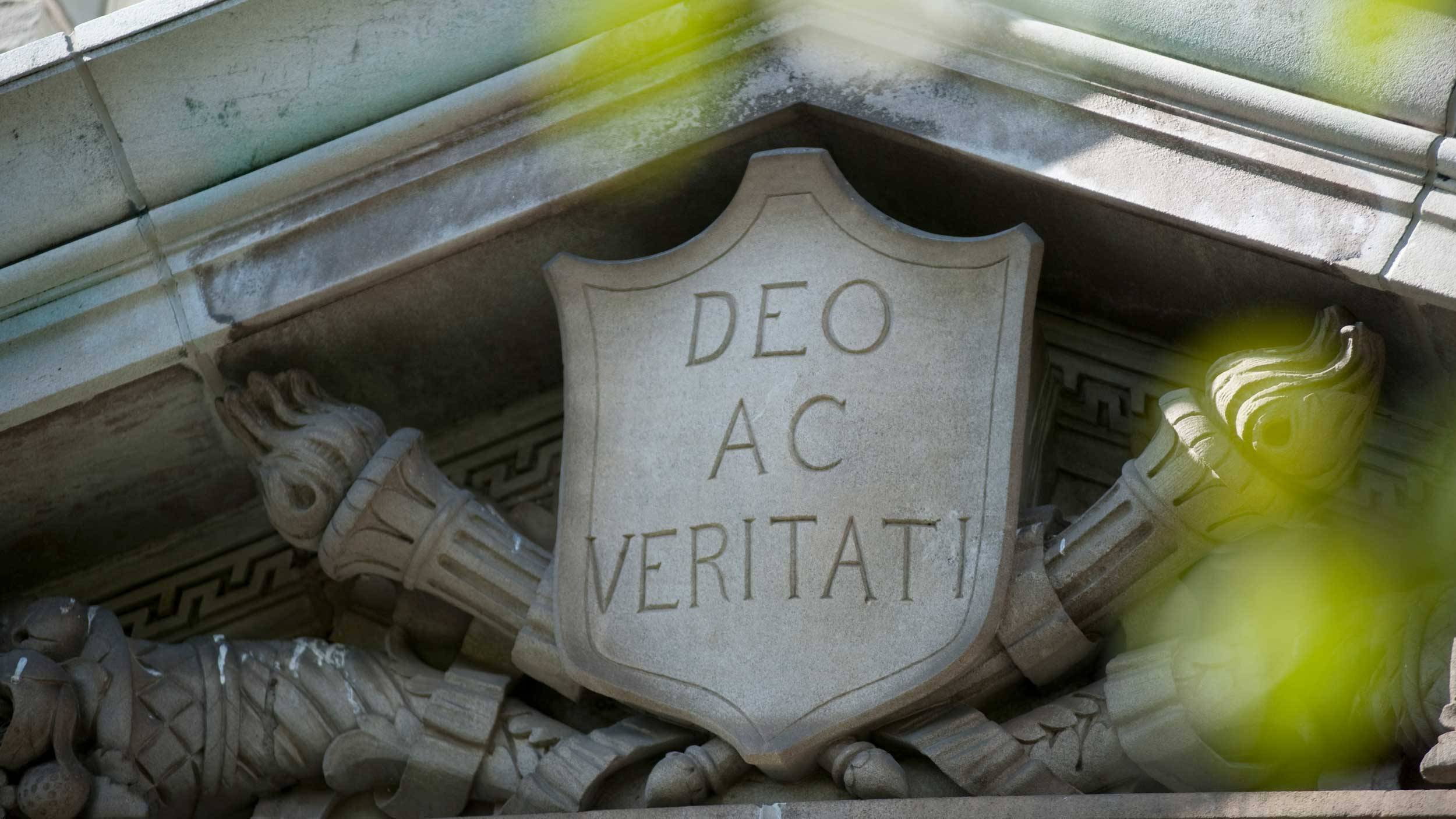Throughout the spring semester, the Colgate community is engaging in a series of conversations and presentations on the Arab-Israeli conflict and the war in Gaza. These events are part of an ongoing effort to provide students with in-depth learning experiences and space to discuss complicated global conflicts.
Associate Professor of Political Science Bruce Rutherford delivered a two-part introductory lecture in January and February. He began the series by presenting the Palestinian and Israeli perspectives in a full, neutral fashion. To represent the Palestinian perspective, Rutherford discussed their historical, spiritual, and legal claims to the land that is currently Israel as well as the Palestinian territories of the West Bank and Gaza Strip. Rutherford described how, in this territory, Palestinians comprised a majority of the population prior to 1948.
“Here, [Palestinians] developed an identity and history that was distinct from surrounding territories,” said Rutherford. “They claim the right to self-determination — to stay and build a state.”
To present the Israeli side, Rutherford harkened back to the 19th century. This was when an influx of Jewish migrants traveled from Europe to Palestine.
“The central reasons for that [migration] have to do largely with intensified anti-semitism in Europe,” said Rutherford. “So their stance was that, if they created their own state, they would have control over their physical security and the opportunity to protect and develop their religious culture.”
Rutherford offered that this was when Zionism became a political movement, in the latter part of the 19th century into the 20th century. This position, alongside spiritual and legal claims, propeled the Israeli argument, he said, and a land dispute between the Palestinian and Israeli sides ensued.
Rutherford bridged this dispute to the 2023–24 Gaza War in his second presentation and discussed the possibility of a ceasefire.
“Despite the destruction of the conflict on both sides, the United States believes that there is an opportunity to build a broader regional peace,” said Rutherford. “At the end of that peace process, Israel will be more secure.”
Rutherford’s lectures were the first in a series of ongoing academic events related to the Israel-Hamas war, featuring:
- Derek Penslar, William Lee Frost Professor of Jewish history at Harvard University (Feb. 14), who discussed emotions of hostility toward Jews and Zionism.
- Yair Rosenberg, staff writer at The Atlantic (March 5), who will discuss army service and national identity, Israel’s conduct in the war, and the press.
- Jonathan Price, professor of classics and history at Tel Aviv University (March 19), who will relate ancient theories to modern conflicts.
- Scholars Dana Olwen and Laura Jafee (March 20), who will discuss their work on Palestinian feminism in the Center for Women’s, Gender, and Sexuality Studies.
- Lori Allen, political anthropologist and author (March 25), who will discuss her book on Palestinian commissions (A History of False Hope) in a Zoom session hosted by MIST.
- Michelle Campos, historian (April 3), who will speak on the history of Ottoman and mandatory Palestine.
